Africa has been losing boys for generations.
From the time of the transatlantic slave trade, successive generations of young men have moved off the continent into the New World: first by force and later searching for opportunities Africa has not been allowed to cultivate for them. These young men have become the black face of the migrant crisis, among the swath of faces that the European Union looks too when searching for somewhere to place blame. Through hours of BBC reporting, documentary footage and headlines of the drowned and impoverished; we are made to remember them only as economic statistics and evidence of social decay. In the Cannes-debuted Atlantics, we’re asked not only to remember them for who they are but to think about those they leave behind.
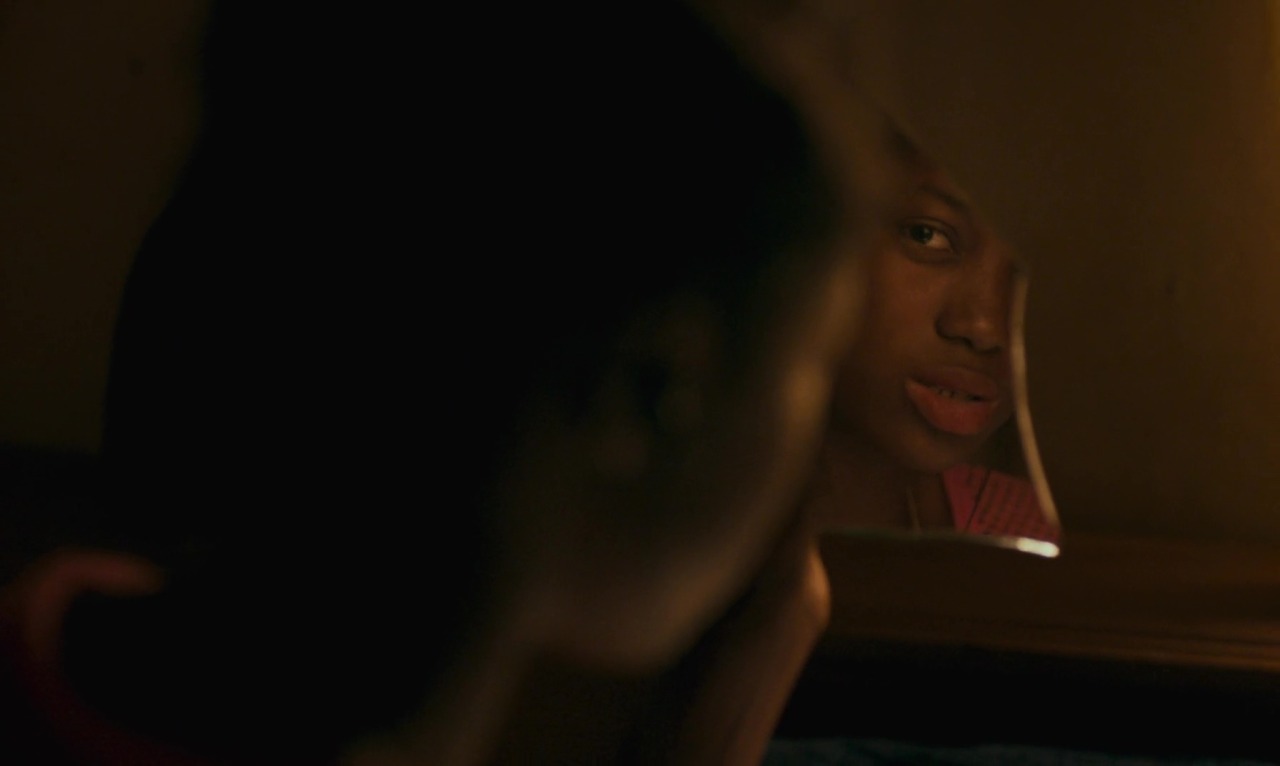
Set against the backdrop of the Dakar suburbs, Atlantics tells the teenage love story of Ada and Soulieman. Ada is set to marry a wealthy urban playboy, but she loves Souleiman: a poor construction worker. They steal kisses in abandoned buildings on the waterfront, conscious that no one should see them; protected by invisibility. While Ada spends her days with family and friends, Soulieman works at building a futuristic business tower in the centre of the city. However, he and his co-workers are kept poor by a boss who has not paid their wages for months. When Ada arrives to meet Souleiman at a bar late one night, she is given the news that he and his co-workers have left to sea on a small boat headed for Spain. The disappearance of these boys on a journey well known (and deeply feared) sends the women they have left behind into a plummet. Girlfriends, sisters and mothers pass the news from hand to hand like a weight; each knowing the impending likelihood of death. As life continues, the memories of these boy’s haunt those who knew them like a ghost. Ada and the other women cannot continue their lives until what has happened to these boys is resolved. So, then, Atlantics becomes a supernatural teenage love story and the story of a community in turmoil, seeking the answers.
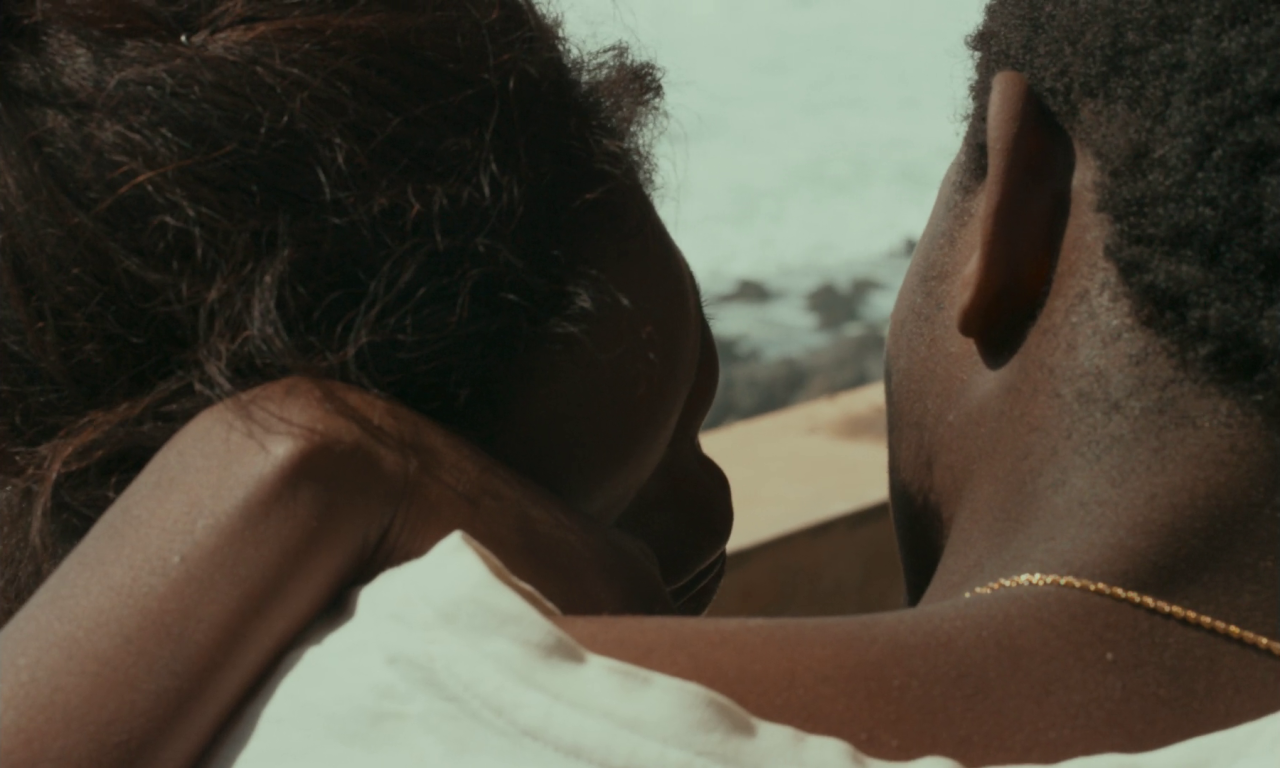
The canon of Black Love stories is ever-growing. Most recently, films like Queen & Slim and Moonlight have rocked the boat by putting Black Love at the centre of narratives both explicitly political and otherwise. While it joins this burgeoning canon, Atlantics sets itself apart by exploring the trauma of love lost as love experienced. Throughout the film, it is Souleimans absence that both grounds Ada and send’s her into a tailspin. Her world is upended by his disappearance, yet it is the presence of his ghost and her conviction in loving him that keeps Souleiman an active character while his body is off-screen. Their relationship is continued through a series of disruptions of Ada’s life; where she is left in Dakar to both defend him, represent him and defend herself against the world. In a scene where Ada kneels on the prayer mat in her bedroom, praying for Souleiman’s safety, the camera captures the physical pain of her longing for him as it travels over her body.
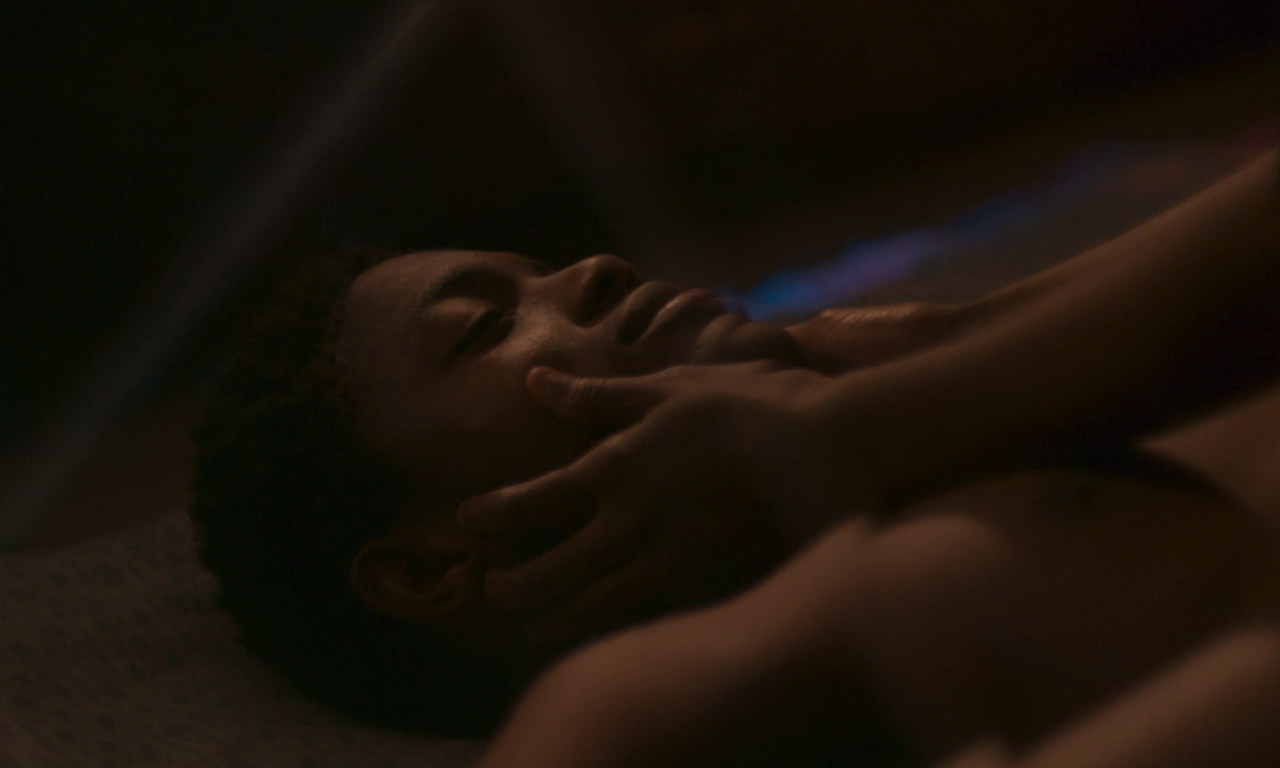
The visuals themselves are a carrier for the love that exists between the two. The haze of brown dust on the busy street in traffic, the sunlight beating down on the city. Long, endearing shots of the ocean. The neon-lights of the seaside bar. The cinematography is a love letter to Dakar and a symbol for what exists between Ada and Souleiman, when they have little opportunity to say it out loud.
Through Ada and Souleiman, we get both a love story and a coming of age story that puts questions about African youth at the forefront. In doing so, the movie joins a film like Celine Sciamma’s Girlhood in asking us to think about African teenagers (and their joys and perils) in the contemporary, not the imaginary past.
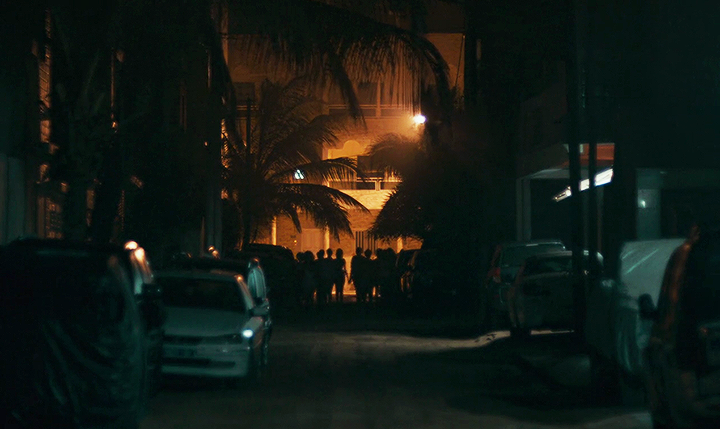
Throughout the film, Mati Diop places responsibility for the tragedy of these lost boys on those who wield power. The most supernatural elements of the film are moved forward through the women who take up the cause of the lost wages. In a strangely feminist protest, these ghost women walk Dakar in search of answers for the money unpaid, for the undelivered cheques that row the small boat further into the ocean, and through their bodies that some form of justice might finally be served. In a scene reminiscent of the spitting finale in Ousmane Sembene’s Xala (1975), the ghost women stand in the living room demanding an answer for the wrongs done. As the women left behind become sicker every day, Diop and her film ask us to think about the trauma of staying, of having to live on. Ada, herself, becomes traumatized by having to answer to the police for Souleiman’s disappearance almost daily, while simultaneously contending with a husband she doesn’t love or desire and a family that is unwilling to hear her out.
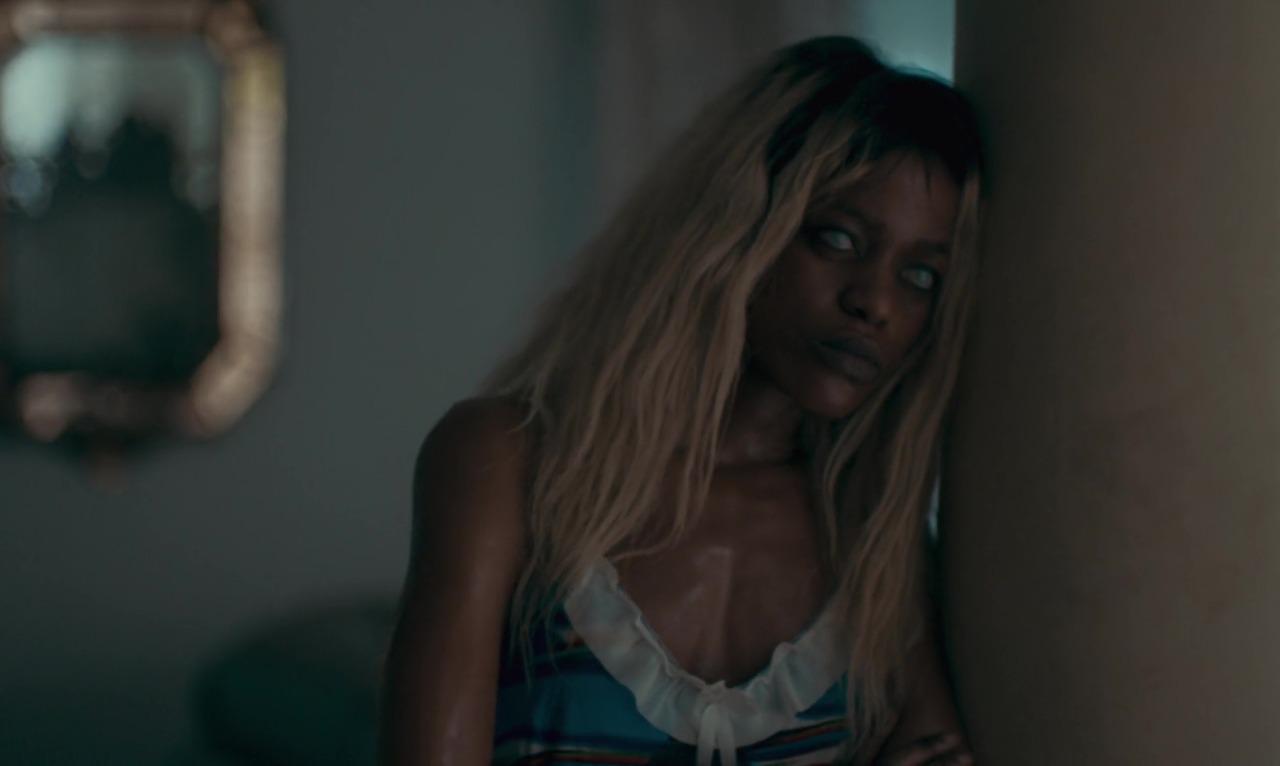
Mati Diop adds this film into a canon of Africana work that puts a question mark on both sides of the Atlantic and turns the ocean under the middle passage from blue to blood red. Poets like Warsan Shire have been exploring the complicated emotions that come with Black migration, her poems (like the painful Home) becoming a touchstone for the trauma of a new, young generation of migrants.
This film feels like the descendant of a film like La Noire De (Black Girl) by Ousmane Sembene, which follows a young woman from Dakar to the South of France. She dreams of beginning a cosmopolitan life, but instead is held captive and effectively made a slave in the holiday home of a French couple who eventually force her to commit suicide. The film is also descended from Djibril Diop Mambety’s (who is also the uncle of Mati Diop) 1973 film Touki Bouki, where a young couple try to scam their way to Paris, only to find themselves split up by one’s inability to leave his roots. Atlantics asks us to rethink on some of the questions that these two films leave open ended: who did those characters leave behind when they boarded those ships to Europe? What is the cost of leaving in this way?
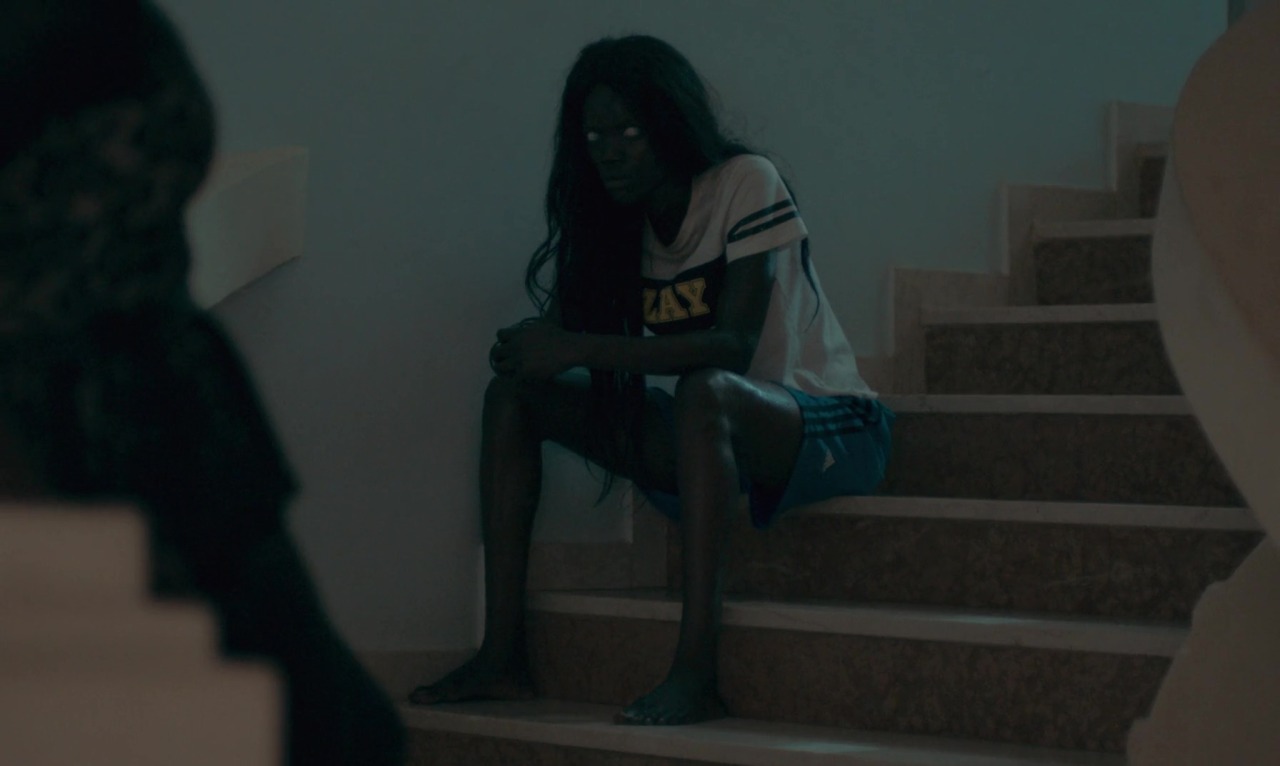
Atlantics is a film that will be interpreted as political in its nature, though the film itself does not bother much with politics at all. It is a story that obscures the worlds economic and political exploitation-fascination with Africa in favour of telling the stories of young Africans themselves. As much as this film is about economic exploitation, it is a love story, a coming of age story and a ghost story. Soulieman and Ada remain together even though the Atlantic and the otherworld keep them apart. Their young love is the films unwavering foundation. Through leaving on the sea, Soulieman becomes a man in ways we’ll never understand because he is never able to articulate it. Through staying behind, Ada comes of age like a car hitting a tree: her youth seeping away from her with every new disruption of her life. Throughout the whole film, the ghosts of the lost boys hold the narrative and the viewer like a crumpled paper in their fist.
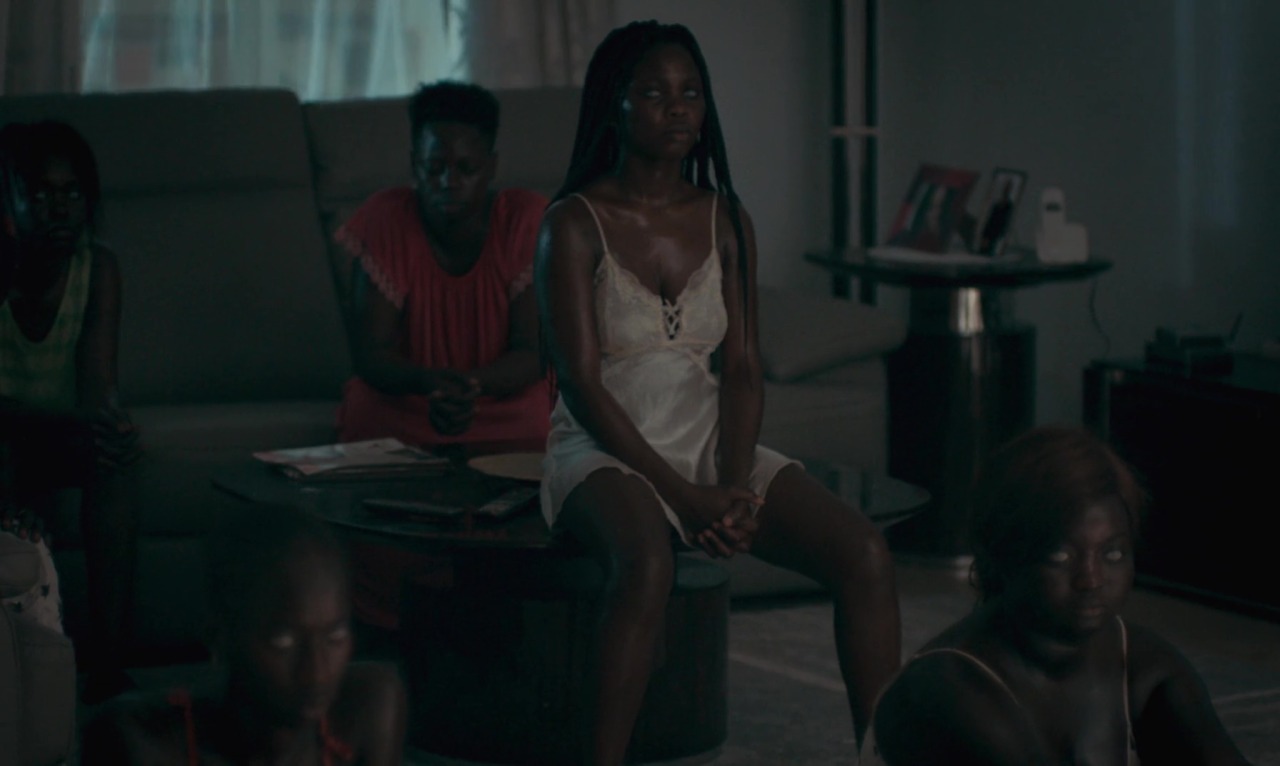
Atlantics is available for streaming on Netflix.



















































